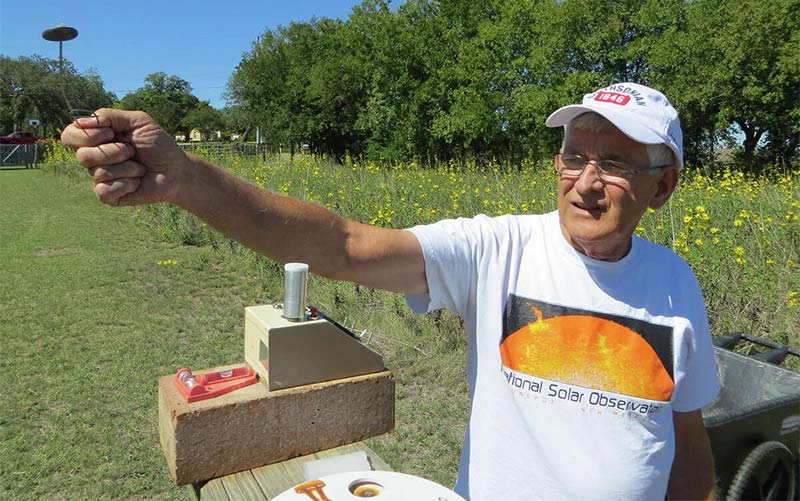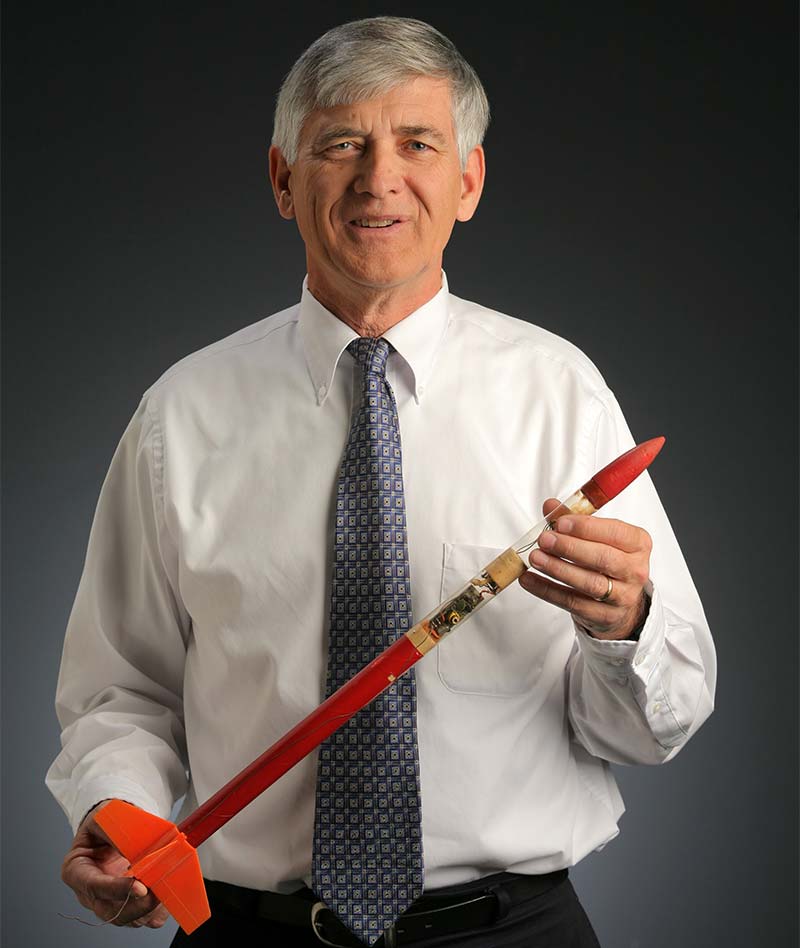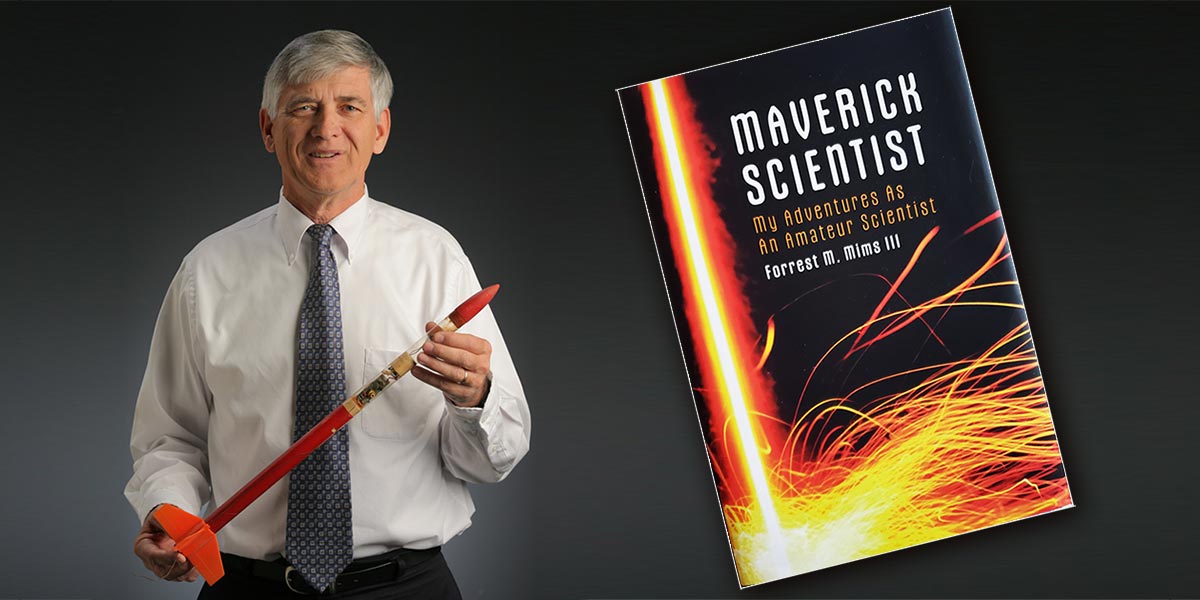A Glimpse into the Extraordinary Scientific Career of Forrest M. Mims III
There are two kinds of people in this world: those who are told something can’t be done and they don’t bother trying; and those who are told something can’t be done and they do it anyway.
The latter personifies Forrest M. Mims III.
Forrest Mims is an American amateur scientist, magazine columnist, and author. In fact, he is the most widely read electronics author in the world. His 60 books have sold over 7.5 million copies.
Mims’ Getting Started in Electronics and Engineer’s Mini-Notebook series of instructional books were originally sold in RadioShack electronics stores and are still in print. They are entirely hand-lettered and hand-illustrated to re-create the look of Mim’s own laboratory notebooks.
Mims graduated from Texas A&M University in 1966 with a major in Government and minors in English and History. He became a commissioned officer in the United States Air Force, served in Vietnam as an Air Force intelligence officer (1967), and a Development Engineer at the Air Force Weapons Laboratory (1968–70).
Mims has no formal academic training in science, however as noted, he still went on to have a successful career as a science author, researcher, lecturer, and syndicated columnist.
Mims was born in 1944 in Houston, TX to Forrest M. Mims, Jr. (1923-1996) and Ollieve E. (Dunn) Mims (1924-1995). He was the oldest of five children: two boys and three girls. Mims’ father was an Air Force pilot and the family lived on military bases from Alaska to Florida, but their home state was Texas.

Maverick Scientist — The Book
One thing that resonates throughout this memoir is that if you’re sure of the integrity of your data, then stick with the data and ignore someone else’s opinion. Remember that it’s been said that one experiment is worth a thousand expert opinions.
Most scientists work in clean, safe, and comfortable laboratory environments. Far fewer travel to the jungles of the Amazon to perform critical atmospheric research while experiencing sweltering heat, biting mosquitos, spiders, poisonous snakes, caiman, and piranha. Forrest has shown himself to be one of those exceptional few that are equally at home in the classroom or the field.
Forrest was one of the 1993 Rolex Award recipients for his work in ozone monitoring and the development of his Total Ozone Portable Spectrometer (TOPS). There’s a good reason that Discover Magazine named him as “one of the 50 best brains in science.”
A life lived is a life well lived, and Mims has certainly done his share of exploring the world. Some of that exploring was acquiring ozone data during a solar eclipse while on a cruise ship in the Gulf of California (Sea of Cortez), monitoring air quality atop MLO (Mona Loa Observatory) on the big island in Hawaii, performing field measurements in the Jungles of South America, and experimenting with model rockets in Vietnam while serving during the Vietnam war.

He was also present for the development of the ALTAIR 8800: the machine that launched the PC revolution. It was Mims who wrote the user manual for the ALTAIR and was around when Microsoft was just getting started in Albuquerque, NM. Microsoft wrote the initial BASIC software for the ALTAIR.
If you’re a professional scientist, amateur scientist, engineer, a school kid looking for an innovative science fair project, someone who enjoys planting gardens, or photographing sunsets, you will be inspired to take that extra step to document your findings and possibly make a new discovery.
Mims had to fight against the bias of professional scientists when his inexpensive, homemade instruments found an error in NASA’s very expensive Total Ozone Mapping Spectrometer (TOMS) satellite.
The reader of this memoir will also be inspired by Mims prolific scientific career. When someone tells you that you’re too inexperienced, don’t have the proper college education or scientific training, your equipment is too simplistic to make scientific measurements, or that you aren’t capable of doing high-end science, ignore them and do it anyway. NV



